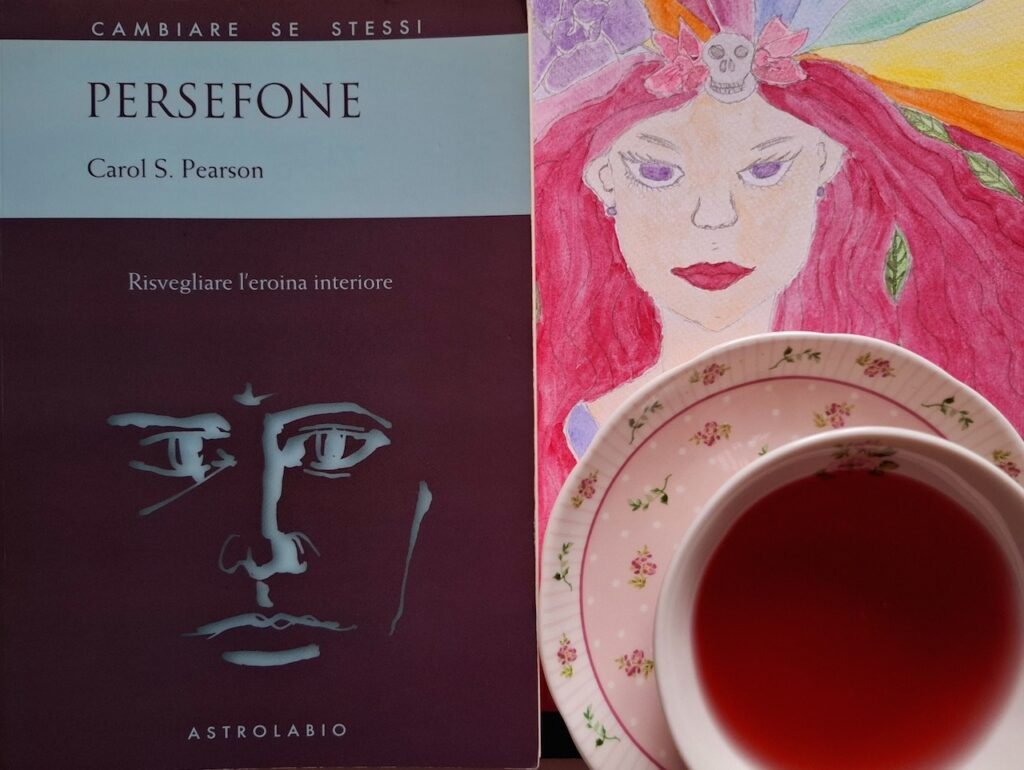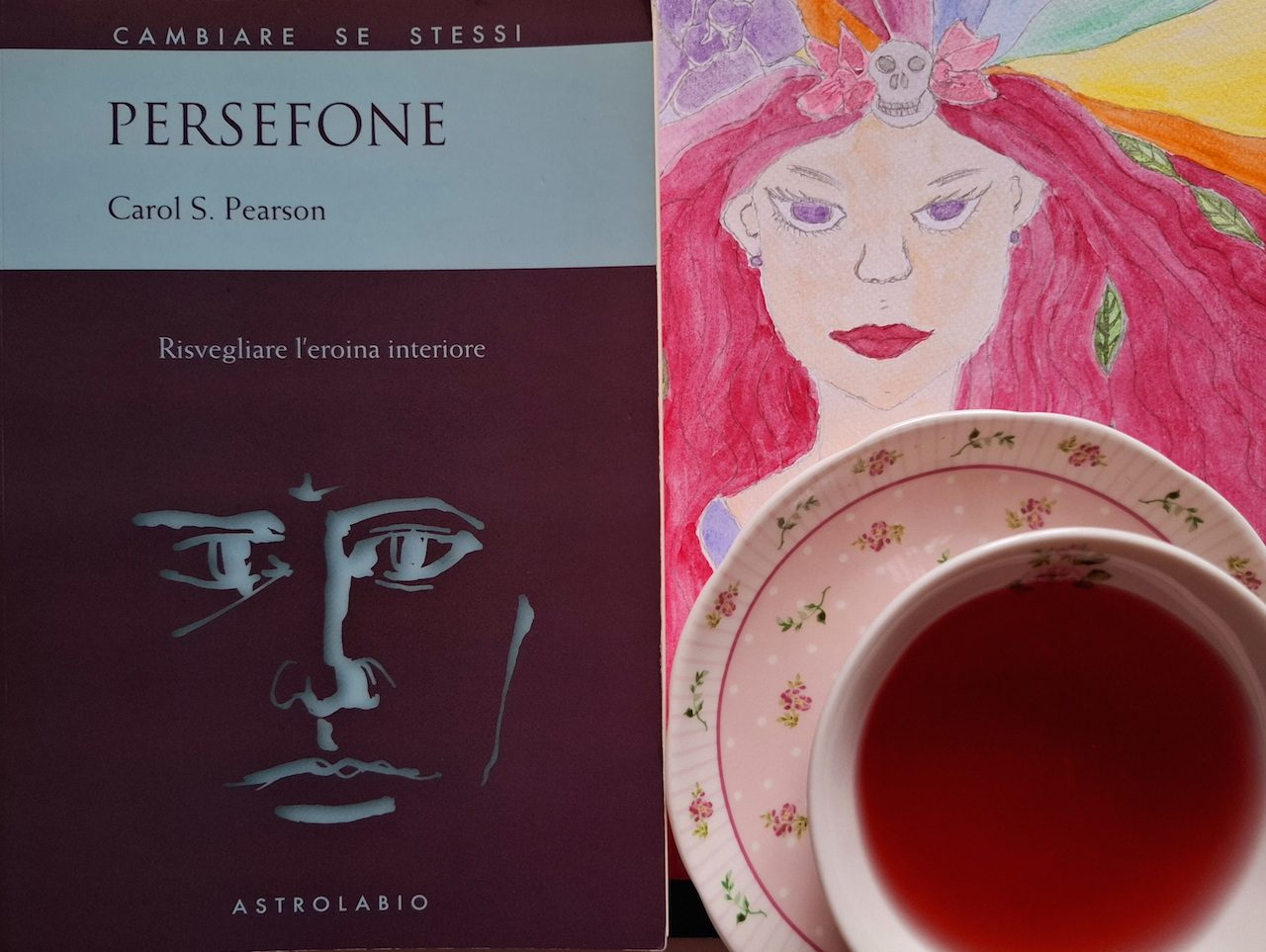In alcune tipologie di tè aromatizzati spesso troviamo la nota del melograno. Ho trovato un infuso molto buono presso il negozio Stregate.
Il melograno è un frutto rappresentativo della dea Persefone che fu rapita da Ade per essere sua sposa negli Inferi, mentre la madre Demetra ad ogni primavera ne attendeva il ritorno. Il mito narra che è così che nacquero le stagioni.
L’inverno rappresenta il momento in cui Persefone risiede negli Inferi con Ade e la primavera il momento di ricongiungimento con la madre. Complice in questa leggenda, il melograno che Persefone mangiò mentre era con Ade, anche se gli fu proibito.
La donna Persefone non ancora matura è la moglie ubbidiente e remissiva che ha un rapporto viscerale con la madre, ma è dotata di grande intuizione e sensibilità, che sono la sua forza interiore. Una donna con un forte archetipo Persefone sarà in grado di analizzare se stessa, guarire le sue ferite interiori, sanare il rapporto con la madre, donare a chi ha più bisogno e avere un rapporto sano con un uomo dal quale non si senta sottomessa. Rappresenta la fanciulla che cresce e diviene una donna saggia e il melograno ne è il simbolo per eccellenza.
Sono diversi i testi letterari che hanno affrontato gli archetipi femminili delle dee ad esempio – Le dee dentro la Donna – Una nuova psicologia femminile di Jean S. Bolen edito da Astrolabio nel 1994 oppure Persefone di Carol S. Pearson sempre edito da Astrolabio nel 2015. Questa collana è davvero molto bella e la consiglio vividamente a chi apprezza i testi di psicologia.
Da poco è passato l’equinozio di primavera che ci ricorda il ritorno di Persefone dagli Inferi, per fare germogliare nuovamente la terra dopo il freddo inverno.
Gli archetipi del femminile sono stati un valido aiuto nel mio percorso personale e ne parlerò anche in un capitolo del mio libro “Il profumo del Tè” che è quasi terminato, inoltre lo scorso anno ho iniziato una serie di disegni e di dipinti dedicati proprio alle dee greco-romane, vista la mia passione per la mitologia.

“Persefone” di Carol S. Pearson edizioni Astrolabio – Disegno e Photo@Veru
Persefone and the pomegranate

In some types of flavored teas we often find the note of pomegranate. I found a very good infusion at the Stregate shop.
The pomegranate is a fruit representing the goddess Persephone who was kidnapped by Hades to be his bride in the Underworld, while her mother Demeter awaited her return every spring. The myth says that this is how the seasons were born.
Winter represents the time when Persephone resides in the Underworld with Hades and spring the time of reunion with her mother. Complicit in this legend, the pomegranate that Persephone ate while she was with Hades, even though it was forbidden to her.
The not yet mature Persephone woman is the obedient and submissive wife who has a visceral relationship with her mother, but is gifted with great intuition and sensitivity that are her inner strength. A woman with a strong Persephone archetype will be able to analyze herself, heal her inner wounds, heal the relationship with her mother, give to those who need it most and have a healthy relationship with a man to whom she does not feel submissive. She represents the girl who grows up and becomes a wise woman and the pomegranate is the symbol par excellence.
There are several literary texts that have addressed the female archetypes of goddesses for example – The Goddesses Inside the Woman – A New Female Psychology by Jean S. Bolen published by Astrolabio in 1994 or Persephone by Carol S. Pearson also published by Astrolabio in 2015. This series is really very beautiful and I strongly recommend it to those who appreciate psychology texts.
The spring equinox has just passed, which reminds us of Persephone’s return from the Underworld, to make the earth sprout again after the cold winter.
The archetypes of the feminine have been a valid help in my personal journey and I will also talk about them in a chapter of my book “The Scent of Tea” which is almost finished, furthermore last year I started a series of drawings and paintings dedicated to Greco-Roman goddesses, given my passion for mythology.



No responses yet